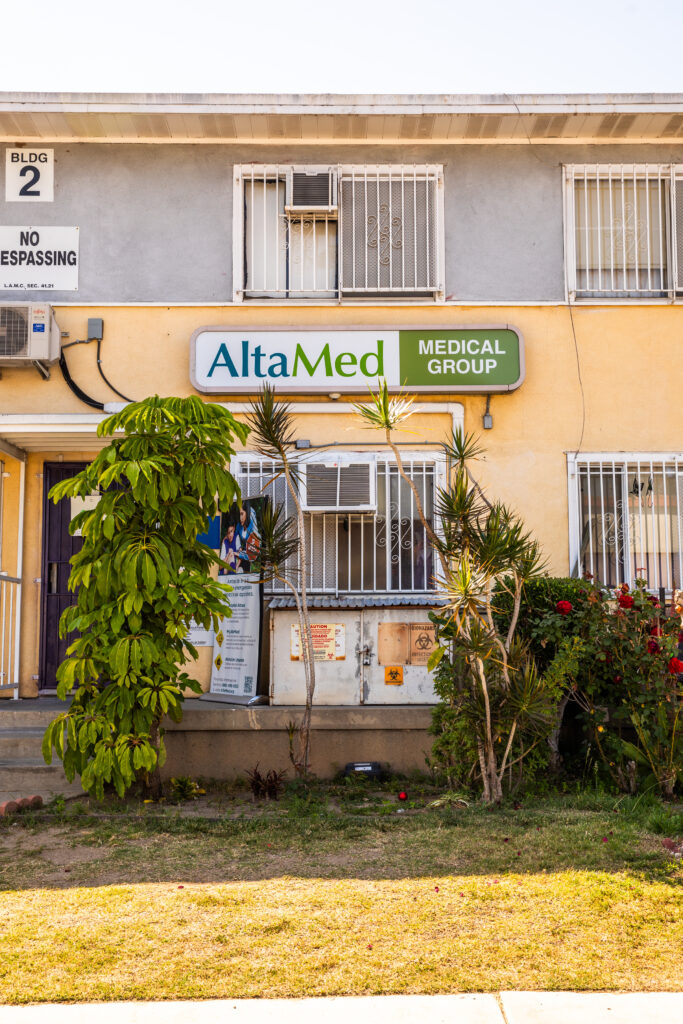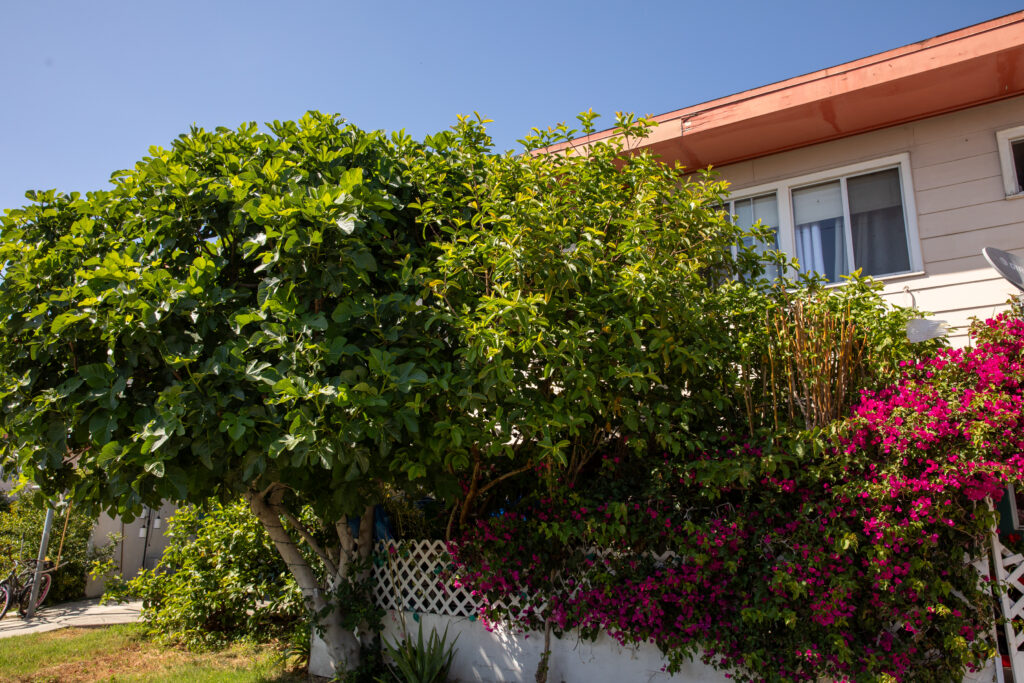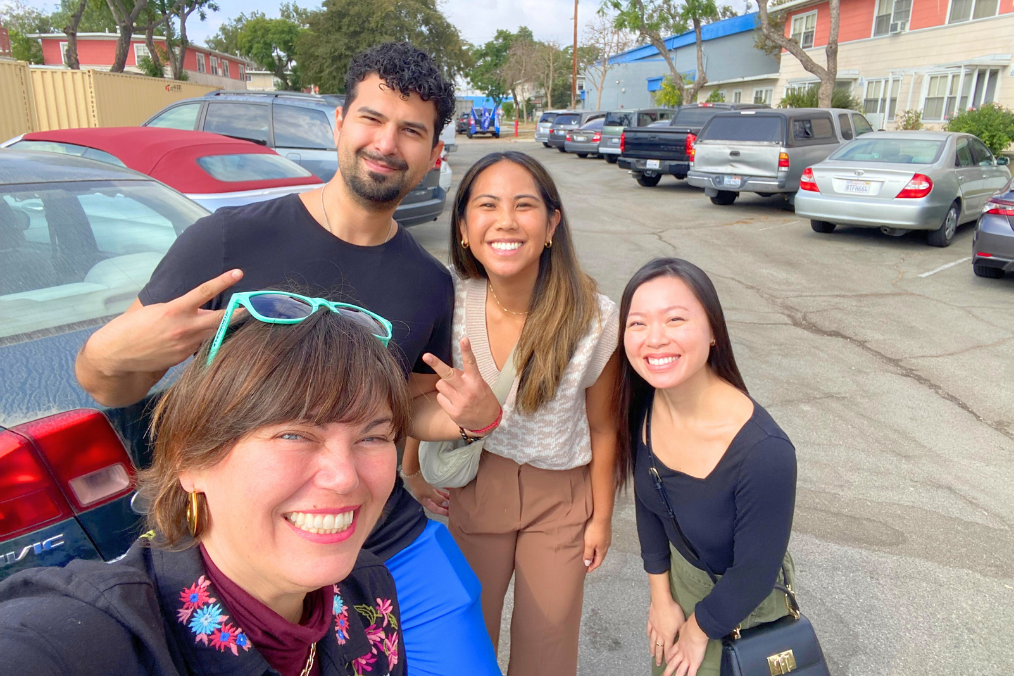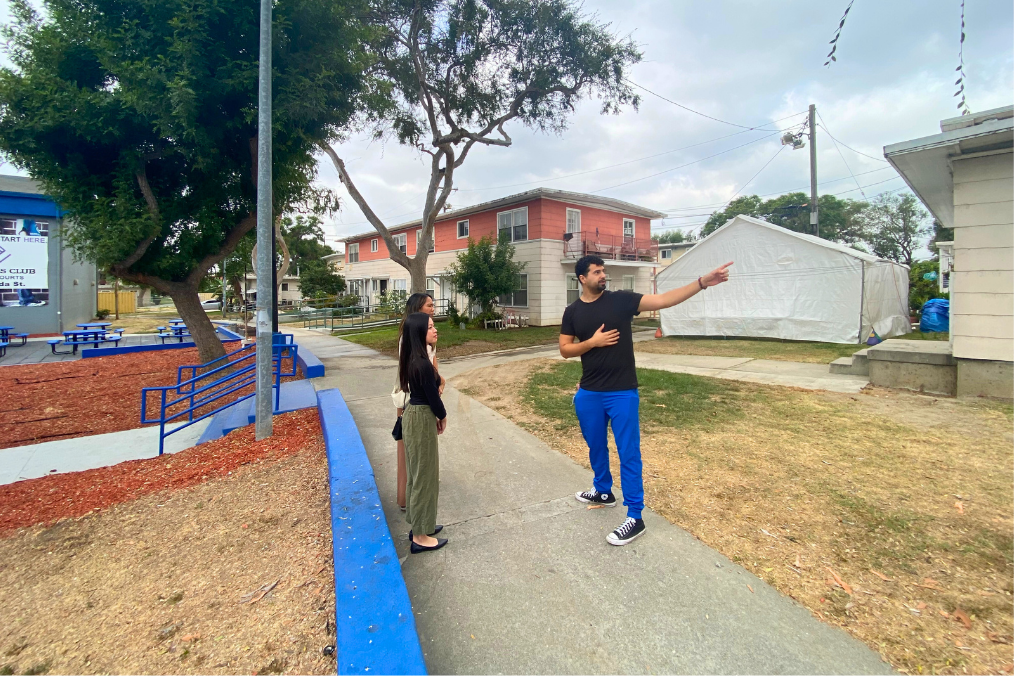Ripe for Change: How Real-World Exposure Grows Better Healers


Guava trees at the Estrada Courts Public Housing Development in Boyle Heights, CA. The trees are rooted in soil that has long been a concern for the community.
Adrienne Martinez-Hollingsworth, Ph.D., R.N., PHN can’t stop thinking about guavas. Tall, beautiful guava trees dot the paths leading from the Estrada Courts public housing complex to the nearby elementary school. Their limbs are heavy with ripe fruit and hang over the walkway that children and families pass through on the way to and from school. Reflecting on her own experience growing up in a food insecure household, Dr. Martinez-Hollingsworth says “They hit you with this smell when you’re twenty feet away. There is no way, as a child, that I would not have eaten them every day. If they were there, I would have eaten them. I can tell you that with complete certainty.”
Unfortunately, the trees are rooted in soil that has long been a concern for the community. A legacy of industrial work in the area has led to an effort to protect the residents by discouraging the planting of fruit and vegetables directly in the ground soil. While personal gardens can be seen outside many front doors across the complex, all are contained in above ground pots and planters to ensure safety. The guava trees, many decades old, are part of the original site and grow from directly from the soil with no barrier for protection.
From Research to Real Life: Preparing the Next Generation
Dr. Martinez-Hollingsworth is the Director of Research and Evaluation at the AltaMed Institute for Health Equity. As part of her role at the Institute, Dr. Martinez-Hollingsworth oversees a number of programs designed to provide career exposure in health equity research outside of the traditional clinical setting.
Established in 2017, the Institute for Health Equity (the Institute) is dedicated to identifying and removing barriers to optimal health through research, education, and policy translation, working collaboratively with patients, families, and community partners to advance health equity and social justice. The Institute is co-led by Marco Angulo, M.D., Medical Director of Medical Education and Roger Liu, Ph.D., AVP, Medical Education.
She recently visited Estrada Courts with pre-med fellows from partner institution Charles Drew University, giving them firsthand exposure to the complex social determinants of health that impact residents. She emphasizes the importance of ensuring that future health leaders deeply understand the lived experiences of those facing systemic barriers to health—something that is difficult to grasp without direct exposure. “We are growing the peers that we want,” she says. “The real care starts with us building empathy in the students. Science, anybody can learn.”
Challenging Assumptions About Health Decisions
The guava trees at Estrada Courts illustrate a powerful reality: knowledge alone doesn’t always lead to better health decisions. “How easy would it be for you to make a bad decision despite knowing better?” Dr. Martinez-Hollingsworth asks.
“We’re all taught the Health Belief Model, which essentially says— if people know better, they do better, they make better choices. But the reality is, that’s not true. If you work in these spaces, you know it’s not true.”
For students and researchers in health equity, witnessing these challenges firsthand is a profound learning experience. “Having students walk by something that delicious and tempting and feeling your salivary glands override your inherent knowledge of potential contamination—as a human, that is an irreplaceable experience for someone to have. It takes away these perceptions you have of people’s ability to make healthy choices.”

From left to right: Dr. Martinez-Hollingsworth, Jonathan Guajardo, M.D., and CDU Fellows Dani Ambrosio and Michelle Vu at a visit to Estrada Courts.

Jonathan Guajardo, M.D., pointing out a guava tree growing in the soil at Estrada Courts.
Training the Next Generation of Compassionate Care
These types of experiences are key to fostering cultural humility. They challenge preconceived notions about why people make the health choices they do and create a deeper, more empathetic understanding of the barriers communities face. Based on student’s responses, the visits are certainly having the intended impact.
“Visiting Estrada Courts was extremely eye-opening for me because I was able to witness a direct connection between the social determinants of patients’ health and how those patients received and viewed health care,” said Michelle Vu, a pre-med fellow from Charles R. Drew University. “It deepened my understanding of health choices by making me realize that history does not remain in the past, but very much affects the present.”
Dr. Martinez-Hollingsworth emphasizes that this is exactly the kind of awareness AltaMed seeks to cultivate in future health leaders. “Whether they (the students) are privileged or not, whether they came from a place where they understand food insecurity or not, it doesn’t even matter. It reestablishes this baseline of humanity that we all share.”
When asked why AltaMed is doing this work, Dr. Martinez-Hollingsworth’s answer is simple—“Nobody can do it like AltaMed. We don’t need to wait for other people to change the world. That’s what we’re here to do.”
Through hands-on experiences, mentorship, and immersive learning, AltaMed is ensuring that the next generation of healthcare providers doesn’t just understand disparities from textbooks—they witness them, engage with them, and are inspired to be part of the solution.
Keeping The Legacy of the Free Clinic Alive
All contributions are tax deductible to the extent allowed by law.
Our Tax ID number is: 95-4090420.
© 2025 AltaMed Foundation – All Rights Reserved



